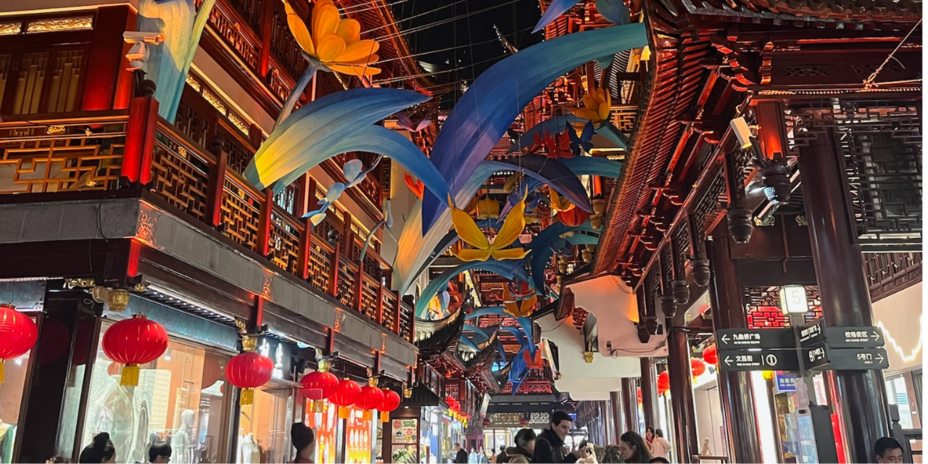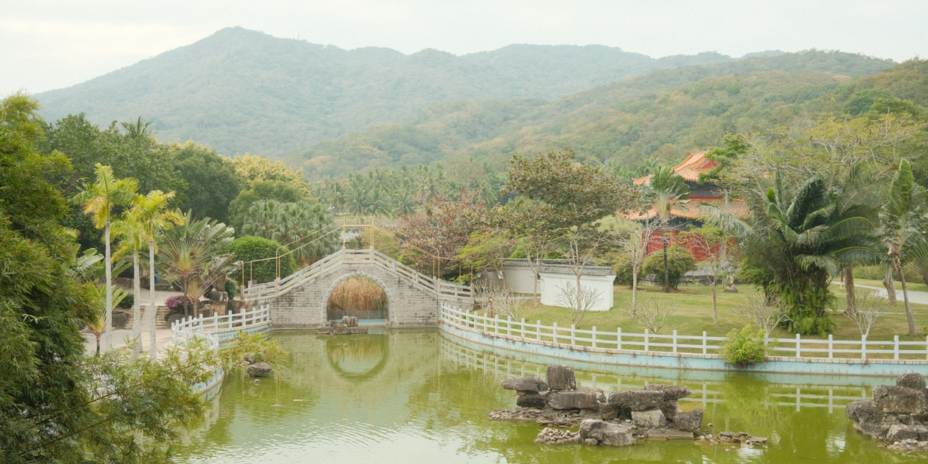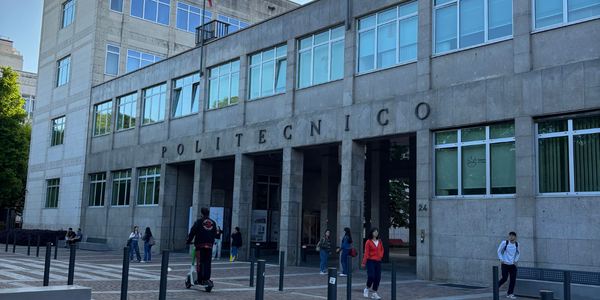Shanghai - a city that never sleeps, a mixture of tradition and future, characterised by breath-taking skylines, streets full of street food and an impressive cultural diversity. For me, it was the perfect place to spend a semester abroad. Not only did I want to improve my Mandarin and be closer to my family, but I also wanted to experience life in a vibrant metropolis. I chose Tongji University, one of the best universities in the city - a decision I did not regret.
The journey to Shanghai: preparation and arrival
Organising a semester abroad in China can be challenging, but with the right planning it is doable. In fact, the right planning is to plan as little as possible in advance. In China, everything happens much more spontaneously and appointments don't have to be booked two weeks in advance (like here), but now and immediately. Before my flight, I only had to take care of my visa and university enrolment. I organised the flat, SIM card, bank account and everything else once I was there.
The timeline for my flat search was more or less as follows:
10:00 a.m.: I search for a local estate agent on a website and express my interest.
10.02 a.m.: The estate agent replies and tells me to come round straight away.
10:20 a.m.: I view the flat and I like it.
10.25 a.m.: I sign the contract.
10.30 a.m.: I have a flat and can move in straight away.
I chose my flat that is about ten minutes by bike from campus. Many of my fellow students lived in the Tongji dormitories, which was cheaper and kept them closer to campus. In hindsight, I probably should have opted for that too - it would have made spontaneous meetings with friends easier.
After your official acceptance for the exchange, the International Office at the partner university will provide essential information to help you prepare for your stay, including housing, visa, and more. For extra tips, read Max’s blog article "14 things you should definitely know before going abroad!", where he shares advice on getting ready for your exchange semester!
Studying at Tongji University: A different rhythm
Everyday university life in Shanghai is very different from that in Austria. While large lectures often dominate in Graz, teaching at Tongji is much more interactive, but also more disciplined. Attendance, homework, papers and presentations play a major role and the examination phase at the end of the semester can be very demanding. However, I felt that the continuous assessment made studying a little more relaxed than in Austria, where there is often only one exam to decide for the whole semester.
Did you know that TU Graz and Tongji University jointly offer a double degree in the Master's degree programmes Mechanical Engineering and Mechanical Engineering and Business Economics? This unique programme allows you to gain international experience in Shanghai and earn two degrees.
The campus itself is like a small town in itself. From canteens and restaurants to grocery shops, sports grounds, parks, print shops and opticians - you can find everything on campus, so you would never have to leave it if you wanted to.
Life in Shanghai: between skyscrapers and street food
Shanghai is a city of contrasts. On the one hand there are futuristic skyscrapers such as the Shanghai Tower, on the other there are small alleyways with traditional markets where you can get the best xiaolongbao (steamed dumplings) of your life for just a few yuan. Life is surprisingly affordable: a coffee costs around one euro twenty, a good lunch is available for one to two euros and even weekend trips within China are easily feasible at around fifty euros for transport and accommodation.
What particularly surprised me was how little cash you need in Shanghai. Even street vendors use QR codes for WeChat Pay or Alipay and people often give you a strange look if you want to pay with cash. WeChat is not just a messaging app, but also the platform for university communication, course registrations, translations, hotel bookings and payment methods. In short, you really would be lost in China without WeChat and Alipay.
On the road in China: travelling made easy
Shanghai is a perfect starting point for travelling within China. Thanks to the high-speed train system, cities such as Hangzhou, Suzhou and Nanjing are just a stone's throw away. If you want to go further out, you can travel to Beijing, Chongqing or even all the way to Hainan - the ‘Hawaii of China’ - in just a few hours.
One of my absolute favourite places was Zhangjiajie - the landscape, which served as inspiration for the film ‘Avatar’, is even more impressive than in the pictures.
Conclusion: A semester that lasts
My semester in Shanghai changed my view of the world. The city has an energy that is addictive, and life there is a mix of comfort, chaos and endless possibilities. The people are incredibly friendly and helpful, and the food is a dream. If you go to China, you should embark on an adventure and be prepared to leave old ideas behind.
Would I do it again? Without question. Shanghai captivated me - and a part of me will always stay there.
Interested in an exchange? All information about Tongji University and other exciting destinations within the Overseas program can be found on TU4U on the programme page “OverSEAs”.










![[Translate to Englisch:]](https://www.tugraz.at/fileadmin/_processed_/b/a/csm_baju_melayu_by_Peter_Fuerlinger_bec25f974f.png)


